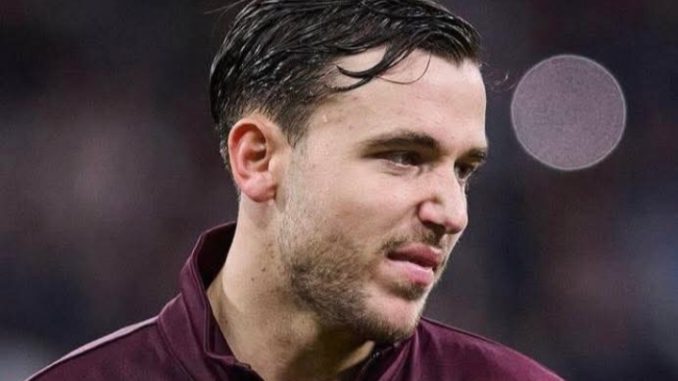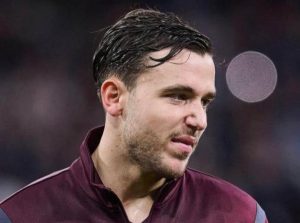
“No, I Don’t See Myself Replacing Rodri; I See Myself as Another Player” – Nico’s Stand on Individuality in Football
In the world of football, where comparisons and expectations often dictate a player’s trajectory, individuality remains one of the most challenging yet essential qualities to maintain. For young players stepping into the shoes of established stars, the pressure can be overwhelming. The weight of expectation can mold careers, either propelling them toward greatness or burdening them with unfair standards.
This reality is particularly true when a promising midfielder is asked if he sees himself as the next Rodri—arguably one of the best defensive midfielders in the world. The response, however, is telling:
“No, I don’t see myself replacing Rodri; I see myself as another player.”
With this simple yet profound statement, Nico asserts his identity, refusing to be cast as a mere shadow of another’s greatness. Instead, he embraces his individuality, highlighting a perspective that is not only refreshing but also crucial in modern football.
Breaking Free from Comparisons
Football thrives on narratives. Every young midfielder who shows promise is compared to a legend—”the next Xavi,” “the next Pirlo,” “the next Busquets.” While these comparisons can be flattering, they also create unnecessary pressure. The implication is that a player must fit into a pre-existing mold rather than carve out their own path.
Nico’s response suggests a rejection of this traditional way of thinking. Instead of embracing the idea that he must one day fill Rodri’s boots, he chooses to define himself on his own terms. This mindset is vital, especially for emerging talents. It allows them to develop without constantly measuring themselves against an unattainable standard.
Rodri’s influence on the game is undeniable. As Manchester City’s midfield anchor, he has mastered the art of dictating play, intercepting opposition attacks, and providing stability. His intelligence, positioning, and passing range make him irreplaceable in Pep Guardiola’s system. But does that mean every defensive midfielder must aspire to be exactly like him?
Nico doesn’t think so. And he’s right.
The Importance of Individuality in a Team Sport
Football is a team sport, yet individuality is what sets great players apart. If every midfielder played exactly like Rodri, the game would be predictable and stagnant. Different players bring different strengths to a team.
Nico might share some qualities with Rodri—perhaps his tactical awareness, ability to break up play, or comfort in possession. But he will also have unique attributes that differentiate him. Maybe he is more aggressive in pressing, more daring in his passing, or better at carrying the ball forward. By acknowledging that he is “another player” rather than a replacement, Nico signals that he wants to develop his own strengths rather than mimic someone else’s.
This perspective aligns with the evolution of football itself. The best teams don’t simply clone players; they build systems that maximize individual strengths. A player who stays true to their own style can bring something new to the team rather than just filling a predetermined role.
Respect Without Imitation
One might assume that rejecting a comparison to Rodri could come across as dismissive. But that’s not the case here. Nico’s statement doesn’t suggest that he lacks respect for Rodri—it simply means that he recognizes the importance of forging his own identity.
Respecting a great player does not mean trying to be a carbon copy of them. In fact, some of the greatest footballers in history have succeeded by diverging from expectations. When Lionel Messi emerged, many wanted to compare him to Diego Maradona, but Messi’s style was his own. When Kevin De Bruyne developed into a midfield maestro, he didn’t try to be the next Steven Gerrard or the next Frank Lampard—he became the first Kevin De Bruyne.
Nico’s words reflect a similar understanding. He acknowledges Rodri’s brilliance but refuses to let it define his own path. Instead of asking, “How can I replace him?” he asks, “How can I contribute to the team in my own way?”
A Psychological Edge
Nico’s mindset also reveals a level of mental strength that is crucial for young players. Many footballers struggle with the burden of expectation. If a player spends their career trying to be someone else, they risk losing sight of their own potential.
By distancing himself from the idea of being Rodri’s successor, Nico frees himself from that weight. He can focus on his own development, improving his game without constantly worrying about how he measures up to an established superstar. This psychological freedom is invaluable in high-pressure environments where young talents often struggle.
Furthermore, this approach can help him adapt to different roles. Modern football demands versatility. If Nico were fixated on playing exactly like Rodri, he might limit his ability to grow into other positions or tactical systems. By embracing his own identity, he keeps his options open, making himself a more valuable asset to his team.
Building a Legacy
At the heart of this discussion is the idea of legacy. Every great footballer leaves a mark on the game, not by replicating someone else’s path but by defining their own. If Nico wants to be remembered as a great player, he must build his own legacy, not merely follow in someone else’s footsteps.
Legends are not born from imitation. They emerge from innovation, from finding new ways to impact the game. If Nico focuses on being the best version of himself rather than the next version of someone else, he stands a better chance of making history.
Conclusion
In just a few words—”No, I don’t see myself replacing Rodri; I see myself as another player”—Nico captures a philosophy that extends far beyond football. It’s a statement about identity, individuality, and self-confidence. It’s a mindset that allows him to grow without unnecessary comparisons, to respect his predecessors without being overshadowed by them, and to carve his own path in a demanding sport.
If he stays true to this approach, Nico won’t just be another promising young midfielder. He’ll be his own kind of player—one who writes his own story rather than living in the shadow of another. And that, in the long run, is what truly defines greatness.
Leave a Reply